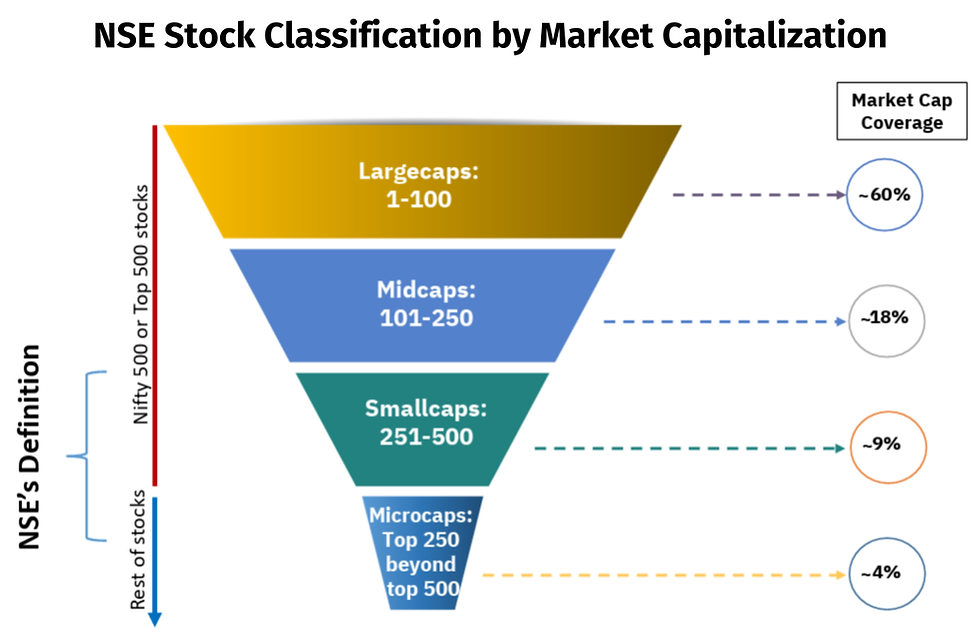Active Management Is Challenging. Is It Meant For You?
- Akshay Nayak
- Jun 13
- 3 min read
Most of us may enjoy actively managing our portfolios. The research that goes into picking our investments provides intellectual stimulation. It gives us a sense of apparent control over our portfolios. But the truth is in stark contrast to this. Active portfolio management is a challenge even for the most savvy investors. I have said this myself repeatedly in the past. But I have never really explained why active portfolio management is a challenge. So that is exactly what I am going to do in this post today. I am also going to comment on the choice of active management as an investment approach. Let us begin by looking at the reasons why active management is challenging.
Idiosyncratic Risk
Investors who pick and manage products expose themselves to idiosyncratic risk. This form of risk arises from factors specific to each product. These include management decisions, industry dynamics, economic environment and more. The only way to manage this risk is to understand the product in detail. Once we do some basic research about a product we feel like we have understood it well. But our knowledge is likely to pertain to selected aspects of the product at best.
We may also lack the insight to go with the knowledge. Knowledge is mere collection of information. Insight is knowing how to apply and draw inferences from the available information. Different people may have knowledge of different aspects of the same product. Therefore their perceptions of the same product are likely to be very different. But neither of them are likely to have a complete understanding. This is similar to a group of blind people touching an elephant. This makes it very hard to manage idiosyncratic risk.

No Guarantee Of Proper Product Selection And Weighting
The only real way to manage idiosyncratic risk is to effectively diversify the portfolio. But effective diversification within an actively managed portfolio is quite hard to achieve in itself. This is because investors would have to identify winning products within each asset class in advance during each period. They would then have to gain adequate exposure to them in their portfolios. But this is extremely hard to do correctly and consistently. So the potential reward of outsized gains may not be worth the effort involved.
Human Behaviour Is Hard To Predict
The central goal of actively managing a portfolio is to beat the market return. This requires investors to accurately predict market outcomes. The market for any asset class is a system of human beings coming together to transact products within the concerned asset class. To predict the outcome of a system, one must understand its behaviour. So beating the market essentially requires investors to understand and predict human behaviour. Most of us know and understand ourselves well. But none of us can accurately predict our own behaviour. Therefore we have no chance of predicting the behaviour of lakhs of other investors around us. This points towards the fact that beating the market (and therefore active management) is a futile exercise.
Why Not Outsource Active Management To The Professionals?
The key to superior active management is the possession of better quality knowledge and insights relative to other investors. It is therefore assumed that professionals would possess these prerequisites. But that is not the truth. Today information is easily and widely available. Most professionals within the financial services industry therefore all have access to similar information and insights. So the performance of most active fund managers in the industry would be similar to each other. This means that there is no inherent source of outperformance available to professional active managers.
The only source of outperformance available to a competent active manager today would be the underperformance of other active managers around them. This effectively means that any outperformance achieved through active management is attributable to luck rather than skill. And therefore, if a professional does achieve genuine outperformance, it does not sustain for long.
Closing Thoughts
Effective active management demands three things from the investor in significant proportions. These are knowledge, time and effort. Virtually all of us are employed in extremely challenging and demanding jobs. The demands of our personal lives are no less taxing. This means we may not be able to offer the kind of knowledge, time and effort required for effective active management. When we may not be able to meet the demands of a particular strategy, it is best not to follow it.
But this is only my opinion. I cannot speak for other investors at large. What is important to remember is that the choice of investment approach is a long term commitment. Each of us therefore have to decide whether the (lack of) potential reward active management offers is worth what it demands. Such an introspection would help each of us make an informed decision.



Comments